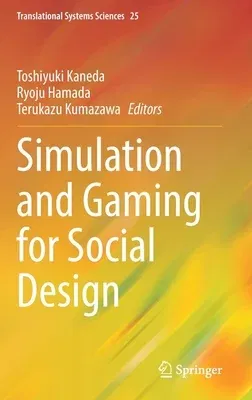This book is a collection of research articles that deal with three
aspects of simulation and gaming for social design: (1) Theory and
methodology, including game system theory and agent-based modeling; (2)
Sustainability, including global warming and the energy-food nexus);;
and (3) Social entrepreneurship, including business, ethnic, and ethical
understanding. The latter two especially form two major areas of
clinical knowledge in contemporary life.
Simulation and gaming, with its participatory approach, provides
participants with a seamless integration of problem solving and
education. It has been known as a tool for interdisciplinary
communication since the 1960s, and now it is being developed to
contribute to global society in the twenty-first century. This is the
first book on simulation and gaming for social design that covers all
aspects from the methodological foundations to practical examples in the
fields of sustainability and social entrepreneurship.
Regardless of the size of the problematics, societal system design
involves (1) The visioning and conception aspects due to the long-term,
overall nature of the goal; (2) Interdisciplinary thinking and
communication for the exploration of new states of accommodation with
technological systems; and (3) The "human dimension" aspect including
education that must be dealt with, thus academic developments of
simulation and gaming for social design as system thinking and practice
methodologies are anticipated.
Simulation and gaming has great potential for development as a tool to
facilitate the transfer between theoretical and clinical knowledge.

